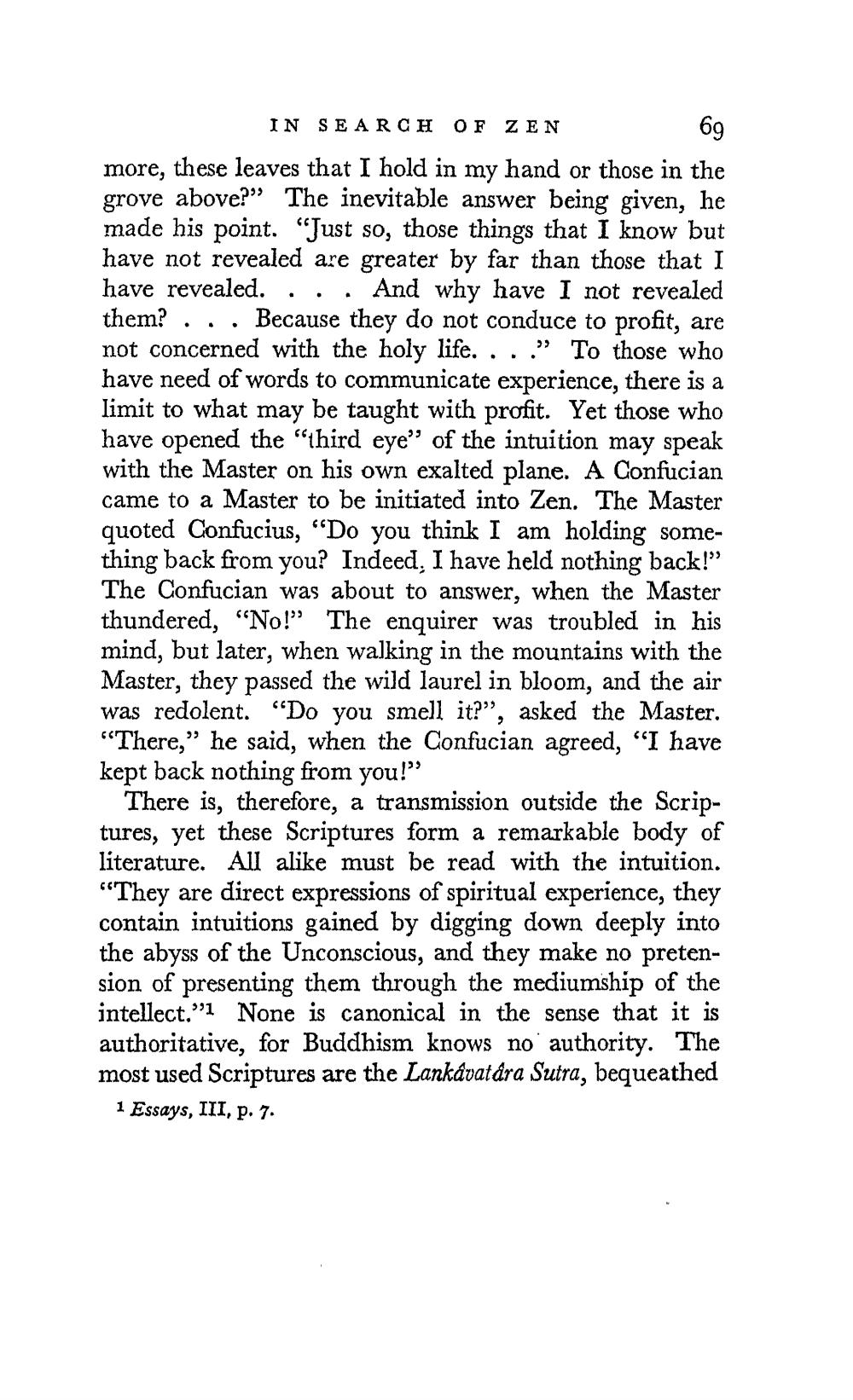________________
IN SEARCH OF ZEN
more, these leaves that I hold in my hand or those in the grove above?" The inevitable answer being given, he made his point. "Just so, those things that I know but have not revealed are greater by far than those that I have revealed. ... And why have I not revealed them? . . . Because they do not conduce to profit, are not concerned with the holy life. ..." To those who have need of words to communicate experience, there is a limit to what may be taught with profit. Yet those who have opened the "third eye” of the intuition may speak with the Master on his own exalted plane. A Confucian came to a Master to be initiated into Zen. The Master quoted Confucius, "Do you think I am holding something back from you? Indeed, I have held nothing back!" The Confucian was about to answer, when the Master thundered, “No!" The enquirer was troubled in his mind, but later, when walking in the mountains with the Master, they passed the wild laurel in bloom, and the air was redolent. “Do you smell it?”, asked the Master. "There,” he said, when the Confucian agreed, "I have kept back nothing from you!"
There is, therefore, a transmission outside the Scriptures, yet these Scriptures form a remarkable body of literature. All alike must be read with the intuition. “They are direct expressions of spiritual experience, they contain intuitions gained by digging down deeply into the abyss of the Unconscious, and they make no pretension of presenting them through the mediumship of the intellect."1 None is canonical in the sense that it is authoritative, for Buddhism knows no authority. The most used Scriptures are the Lankavatdra Sutra, bequeathed
1 Essays, III, p. 7.




